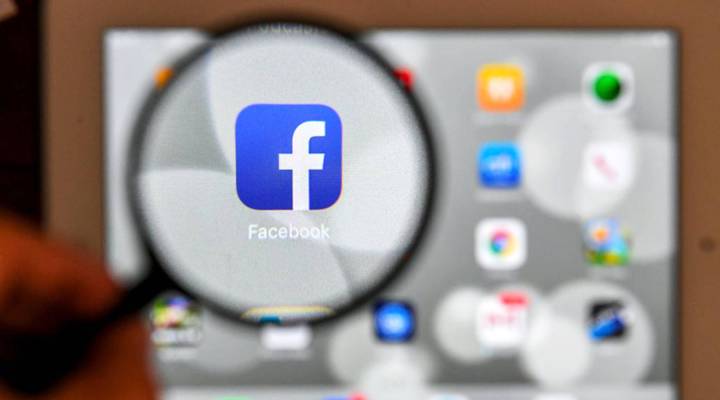
Quitting Facebook might be harder than you think
Facebook’s public image has seen better days. The Cambridge Analytica scandal is the latest public relations disaster to befall the tech giant, and in response, some users are deleting their accounts. But is that realistic? Marketplace Tech host Molly Wood spoke with Jillian York of the Electronic Frontier Foundation about why quitting Facebook is a privilege that not everyone can afford. The following is an edited transcript of their conversation.
Jillian York: Across the world I think that you’ve got a lot of different kinds of communities. You have youth who are trying to explore their identities and connect with different communities of interest, whether it’s LGBTQ communities or anime communities. Or you have people with illnesses, chronic illnesses in particular. There’s a lot of communities on Facebook where that really is the most secure platform that hosts that type of community. Some of the other ones that are out there just simply don’t use the same level of security as Facebook.
Molly Wood: Let’s talk about this attitude that, “people should know what they’re getting into when they use Facebook.” Is it really that unreasonable for us to ask that it be safer with respect to our data?
York: Absolutely I think that we should be demanding that Facebook be safer. Whether that comes from us demanding it or it inevitably comes from regulation, I’m not sure. But I do think that expecting people to completely understand the ways that their data can be used is somewhat unreasonable.
Wood: … If people start using Facebook less and all of those school groups, or organizing groups or even government groups that use Facebook for communication have to build their own websites or start communicating in other ways — is there any way to quantify what that might cost or what that might lead to?
York: There is a cost to that, and so there’s a reason that people choose to use Facebook. At the same time, I think that there are people, or businesses in particular, that shouldn’t be using Facebook for the purposes that they are. One of the things that I heard was from someone whose insurance company requires a Facebook log in, I think it was renter’s insurance. I found that really concerning. And so I do think that we need to be doing more education towards businesses and towards groups about how to keep themselves safe and whether Facebook is even the best choice for them.
Wood: To what extent do you think people think of Facebook as a utility and to what extent might that not be true?
York : I think that a lot of people do at this point view it as a utility or wish that it was. I think the first blog post I read calling it that was in 2010. It was written by danah boyd, the researcher, and she said: “Facebook is a utility. Utilities get regulated.” She was arguing from a historic perspective of how the telephone system and all of these other systems didn’t used to be considered utilities in the U.S., but then eventually became so through pushes by the public through regulation. And we may see that kind of push happen with Facebook and similar platforms in the future.
Wood: Is part of the problem that there is no alternative?
York: Yeah, I do think that we’re seeing some proliferation of alternatives, and that’s great, but there’s no holistic alternative at this point. If you want to replace all of the functions of Facebook that are important to people, you’ll need to come up with a Web site for health communities, a Web site for arts communities, a Web site for events and you’ll have a mailing list. And I think that what people like about Facebook is the centralization of those activities, even when they don’t like the centralization of their data. And so I’m happy to see alternatives starting to crop up, things like Mastodon, but it’s unrealistic to suggest that these fully replace what Facebook has given a lot of people.
| Why a New York professor is taking on Cambridge Analytica in the U.K. |
| Cambridge Analytica, Facebook, and the new data war |
| Sen. Kennedy to Facebook: “Don’t send your lawyers” |
There’s a lot happening in the world. Through it all, Marketplace is here for you.
You rely on Marketplace to break down the world’s events and tell you how it affects you in a fact-based, approachable way. We rely on your financial support to keep making that possible.
Your donation today powers the independent journalism that you rely on. For just $5/month, you can help sustain Marketplace so we can keep reporting on the things that matter to you.


















